Session 1: Digital products and production
Time: 1.30 to 3.15 p.m.
Location: Lecture hall II, lower floor
Content: 2 impulse talks, 7 research pitches, 6 posters
Language: German, English
Host: Rudolf Pichler, Institute of Production Engineering at TU Graz
This session presents contributions from the Fields of Expertise Information, Communication & Computing
and Mobility & Production
.
Edge and cloud computing, 5G, remote maintenance, physical and digital security concepts, machine learning and artificial intelligence – the production environment of the future is changing with the digitalisation of society. These are challenges that need to be met scientifically.

Impulse Talk | Digitalisation for Small- and Medium-sized Enterprises
Stefan Trabesinger, Institute of Production Engineering
Digitalisation is a desirable, but sometimes rather difficult endeavour. Small- and Medium-sized Enterprises (SMEs) seem to struggle with developing approaches on their way to successful digitalisation. TU Graz´s Institute of Production Engineering has designed a transformation model to help SMEs on their path to digitalisation.

Impulse Talk | Cognitive Products
Michael Krisper, Institute of Technical Informatics
Cognitive products (for example safety-aware robotic arms, or warehouse drones) can accomplish astonishing tasks by integrating several aspects of technology in one device (or system): perception and awareness, processing and analysis, communication and networking, smart decisions and predictions, adaption, and finally, safe acting. Along the way, they must balance numerous forces and challenges in terms of dependability, cost-and-energy-efficiency, safety and correctness guarantees, high-quality production and longevity of products, as well as sustainability and long-term effects. In their talk, researchers from TU Graz’s Institute of Technical Informatics present projects and use-cases they are working on to make future products cognitive.

Research Pitch | Optimal Operations in Continuous Pharmaceutical Manufacturing: From Synthesis to Tablet Production
Hazem Damiri, Institute of Automation and Control
Continuous Pharmaceutical Manufacturing (CPM) is one of the most important emerging technology in the field of pharmaceutical industry. By this innovation, all subprocesses are integrated to improve quality and reduce cost. Furthermore, the performance of the system could be boosted by real time optimization where an optimization algorithm is triggered when any change occurs in the system. In our work, we employ this approach in a complete CPM line from synthesis to tablet production.
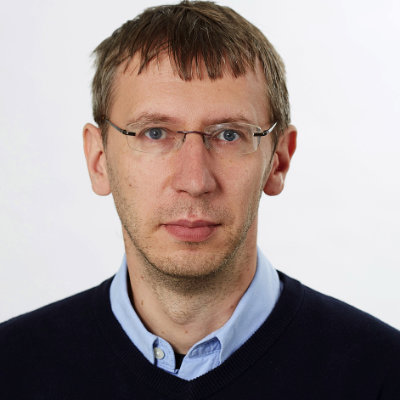
Research Pitch | Edge Computing as a tool to improve industrial production
Jörg Edler, Institute of Production Engineering
In modern production, computerized systems are primarily used both in the planning of production processes and in the manufacturing process itself. Due to this continuous digitalization, data is available that has so far not been used. Edge computing now offers the possibility of accessing existing data in production, processing it, and feeding it back to improve the production process. The great advantage here is that no additional sensors or hardware are necessary, as existing data is used. In this context, two examples of the application of edge computing are presented: while fhe first example pertains to the improvement of machine accuracy in machine tools, the second example involves the early detection of defects in metal cutting production.
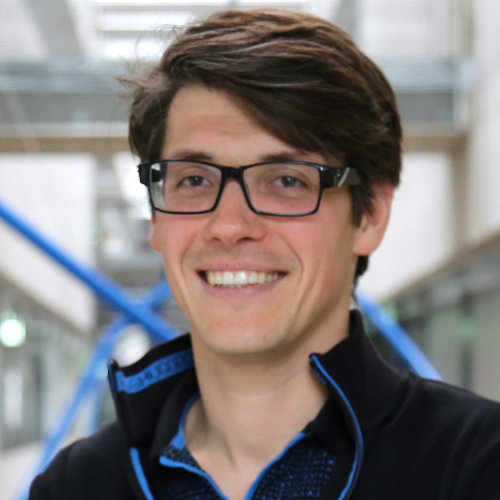
Research Pitch | Digital Innovation and its socio-technological impact
Georg Macher, Institute of Technical Informatics
Open innovation was first introduced in 2003 and has since become an umbrella term that links and incorporates several research streams and innovation activities. Despite its popularity in academia, industry and media, defining a coherent body of knowledge has been difficult due to the lack of a proper definition and conceptualization of the paradigm.

Research Pitch | Data Spaces
Rudolf Pichler, Institute of Production Engineering
Co-Design and Co-Production in and for innovative products is the formula of successful enterprises. In order to not only manage data, but also relevant property rights, legal frameworks and sustainable executions of a new product idea, there is a need for powerful and above all reliable platforms. In that respect, so-called data spaces offer new attractive solutions. This pitch presents the research approach and characteristics of such data spaces with a string of aspects to obtain them and the basic idea of how to accelerate innovative projects.

Research Pitch | Sichere Fahrzeug-Batterien dank künstlicher Intelligenz
Alexander Schmid, Vehicle Safety Institute
Das Verhalten von Batterien in Elektrofahrzeugen im Extremfall ist wenig bekannt. Um ein tieferes Verständnis zu erlangen, werden heute neben realen Experimenten mit tatsächlichen Batterien auch virtuelle Versuche durchgeführt. Dazu benötigen wir ein genaues und effizientes Simulationsmodell, das der Realität möglichst nahe kommt. Künstliche Intelligenz soll uns in Zukunft bei der notwendigen Kalibrierung der Modelle helfen – entwickelt werden die benötigten Algorithmen etwa an der TU Graz.
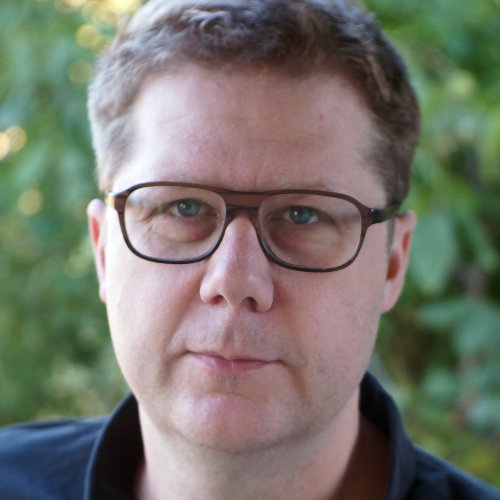
Research Pitch | Predictive Power to the Particles
Stefan Radl, Institute of Process and Particle Engineering
Production processes involving particles and powders are extremely important in industry, simply because the product itself consists of particles, for example pharmaceutics (tablets), or recycled batteries. Smart calibration of computer models (e.g., for the powder's ability to flow) with experimental data is a game changer to increase their predictive power. We present digital workflows that streamline calibration tasks and use machine learning to give true (predictive) power to particle models.

Research Pitch | Flexible and automated production line for battery packs
Gernot Schlögl, Institute of Production Engineering
Electromobility is becoming one of the most important future paths in the automotive industry. One key issue is energy storage. AVL List GmbH together with TU Graz have created the Battery Innovation Center (BIC) to address this topic and offer solutions. Various battery modules can be assembled from battery cell types, and in a next step, the modules are connected to form a compact battery pack. All of this is done by a flexible production line in an automated manner. An in-depth analysis of cell handling with subsequent development, production and verification of manipulation and testing devices for all cell types as well as for other module components formed the basis for holistically designed concepts.
Session 2: Biobased products and production
Time: 1.30 to 3.15 p.m.
Location: Aula, 1st floor
Content: 3 impulse talks, 8 research pitches, 6 posters
Language: German, English
Host: Gabriele Berg, Institute of Environmental Biotechnology at TU Graz
This session presents contributions from the Fields of Expertise Advanced Materials Science
, Human & Biotechnology
, Mobility & Production
und Sustainable Systems
.
Materials from renewable resources are one of the factors that will drive our society towards a more sustainable future. These include bio-based products such as biopolymers, carboxylic acids and similar substances that are obtained from carbon via fermentation or biocatalysis. Or bio-organic energy sources and biofuels. To make bio-based production a reality, an interdisciplinary approach is necessary.
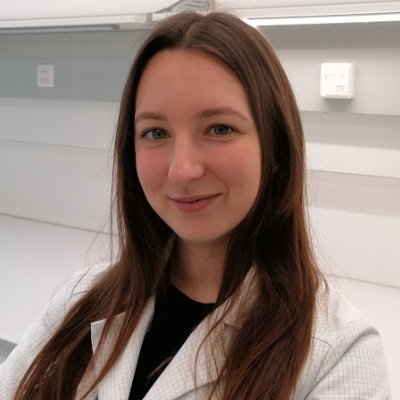
Impulse Talk | From CO2 to biodegradable plastics
Vera Lambauer, Institute of Biotechnology and Biochemical Engineering
CO2 is the best-known greenhouse gas. However, it can also be used to produce biological and biodegradable plastics. The problem is that the utilization of CO2 requires a special mixture of gases that are difficult to dissolve in water, which can be toxic, and sometimes even explosive. Researchers at the Institute of Biotechnology and Biochemical Engineering at TU Graz are working on explosion-proof gas fermentation of the oxyhydrogen bacterium Cupriavidus necator for the production of biodegradable plastics under non-gas-limiting conditions.

Impulse Talk | Healthy Seed Microbiom - Healthy Cannabis Plants
Carolina Boto Courinha Lobato, Institute of Environmental Biotechnology
Farming faces numerous challenges such as climate change, soil degradation and limited resources. The Cannabis plant, which has been gaining popularity due to its therapeutic properties, is not immune to these issues. Research on seed microbiomes has shed light on the importance of the endophytic bacteria that inhabit cannabis seeds and their potential role in mitigating these challenges. By understanding and leveraging these interactions, it may be possible to develop biobased products and production methods for Cannabis that promote sustainable agriculture while improving crop yields and their quality.

Impulse Talk | Enhancing crop resilience by harnessing the microbiome’s potential
Wisnu Adi Wicaksono, Institute of Environmental Biotechnology
In the current scenario of a rapidly changing climate, crop plants are more frequently exposed to abiotic and biotic stresses. Plant microbiomes have untapped potential to enhance crop resilience against abiotic and biotic stresses. However, harnessing the untapped potential of plant microbiome is limited due to the complexity of microbial ecosystems. Hence, the exploration of complex plant microbial communities requires a holistic approach to harness the potential benefits of plant microbiomes to increase resistance against abiotic and biotic stresses. Here, we used the multi-omic approach, i.e., whole genome sequencing, advanced microscopic and transcriptomic analysis to investigate plant microbiome responses to abiotic and biotic stresses. This approach will allow us to create more reliable and effective microbiome-based products to mitigate food losses and will change the future of our agricultural sector.

Research Pitch | Plant health: Uncovering the impact of breeding on the seed microbiome
Kristina Michl, Institute of Environmental Biotechnology
Currently, only the plant’s pheno- and genotype is considered when breeding plants. The concept of a plant being a holobiont, which includes the plant as well as all microorganisms, is disregarded. However, a plant’s microbiome plays a vital role in its fitness, health and stress resilience. Researchers at TU Graz studied the seed microbiome of perennial wheatgrass over four breeding cycles and observed a decrease in microbial diversity and its implications for plant health.

Research Pitch | From crude glycerol to biofuel
Maximilian Neubauer, Institute of Chemical Engineering and Environmental Technology
Our environment not only requires us to use more and more renewable fuel components, but so does the law. From 2030 on, the EU Renewable Energy Directive (RED II) requires that fuel distributors replace 3.5% fossil components with advanced biofuels. In cooperation with TU Graz, OMV’s Glycerol to Propanol (G2P) project aims to develop a market-ready process that will allow the economic production of large quantities of advanced biofuel propanol from crude glycerol.

Research Pitch | Using microbiomes to build a greener agriculture
Olimi Expedito, Institute of Environmental Biotechnology
Microbiome solutions – microorganisms and metabolites – are crucial in achieving sustainability, reducing greenhouse gas emissions and fighting declining biodiversity in agriculture. Researchers at TU Graz assessed the role of microbial products developed by the Institute of Environmental Biotechnology and research partners, together with apple farmers in Styria.
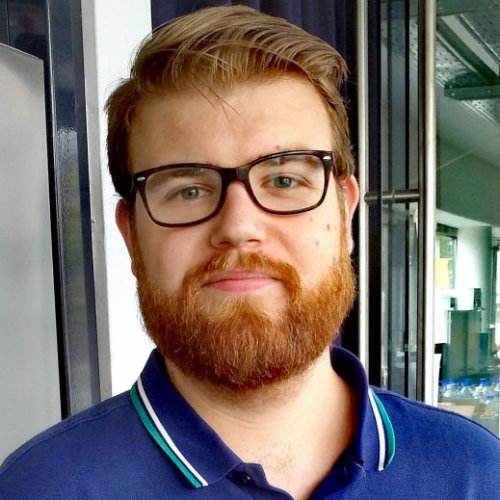
Research Pitch | Copper enzymes for sustainable, modern chemistry
Lukas Rieder, Institute of Molecular Biotechnology
Lytic Polysaccharide MonoOxygenases (LPMOs) are a class of copper enzymes which are essential for recovering sugars from renewable carbohydrates that cannot be consumed by humans like cellulose. In the presence of hydrogen peroxide, LPMOs catalyze the oxidation of glycosidic bonds with enormous precision and speed, resulting in entry points for hydrolases involved in the saccharification process. In this way, the degradation of cellulose is boosted, thus increasing the efficiency of biorefineries.

Research Pitch | Methods of calculating Global Warming Potential
Marcella Ruschi Mendes Saade, Institute of Structural Design
Bio-based products are increasingly proposed as a way of fighting climate change. However, there are different ways to calculate their CO2 uptake and release, which may lead to different outcomes. In Life Cycle Assessments (LCA) there is no consensus over how to account for biogenic carbon, of which biomass-based materials are composed. Practitioners, for example, may choose between static and dynamic calculations of Global Warming Potential (GWP). The dynamic calculation approach has particularly caught the attention of policymakers. This approach has been portrayed as a pertinent way to account for biogenic carbon uptake and release in buildings LCAs. This presentation illustrates the application and simplification of the typically employed approaches for biogenic carbon accounting in building LCAs and discusses whether the benefits of allowing for a wide application of methods outweigh potential methodological flaws caused by the negligence of important parameters.

Research Pitch | Intelligent waste recycling: glycerol pollutants
Maxi Vogi, Institute of Chemical Engineering and Environmental Technology
While biofuels are an essential part of a greener future, the production of biofuels generates one ton of “crude glycerol” per ten tons of biofuels, making it the main source of commercially used glycerol. During the purification of this glycerol, its pollutants form costly waste. TU Graz´s INTEGRAL project uses a novel separation apparatus and machine learning in order to establish an intelligent industrial process which isolates valuable raw materials from different biofuel wastes.

Research Pitch | Holz als Hochleistungswerkstoff
Markus Wagner, Vehicle Safety Institute
Leicht, sicher und umweltfreundlich. Fahrzeugstrukturen auf Basis von Holzlaminaten sollen es möglich machen. Dabei soll ein Prozess aus dem faserverstärkten Kunststofftechnik dazu beitragen Holzlaminaten wieder als Hochleistungswerkstoff im Maschinenbau zu etablieren. Durch „Stiching“ kann die Bruchzähigkeit von Laminaten erhöht werden, so dass sie ihre hohe Festigkeit und geringe Dichte ausspielen können, ohne bei Überlast abrupt zu versagen.

Research Pitch | Utilizing Cyanobacteria for Monooxygenases
Lenny Yap, Institute of Molecular Biotechnology
Oxygenases, with their high selectivity and enantioselectivity for hydrocarbon functionalization, play an important role in synthetic chemistry. However, their utilization is hampered by the difficulty to supply oxygen in the reaction, especially in continuous reactor systems where high pressure and complex oxygen-permeable materials are required. In our work, we propose to utilize cyanobacteria to supply both oxygen and reducing equivalents in the form of NADPH for monooxygenases in a continuous system.
Session 3: Climate neutral products and production
Time: 1.30 to 3.15 p.m.
Location: Lecture hall I, lower floor
Content: 2 impulse talks, 5 research pitches, 4 posters
Language: German, English
Host: Franz Haas, Institute of Production Engineering at TU Graz
This session presents contributions from the Fields of Expertise Fields of Expertise Human & Biotechnology
, Information, Communication & Computing
Mobility & Production
und Sustainable Systems
.
Corporate culture is an important cornerstone when it comes to climate-neutral production. For example, greenhouse gas balances and roadmaps provide important assistance. In addition, green indicators must be defined for production processes and systems, simulation methods and measurement technology must be further developed, and energy and raw material efficiency must be increased. High potential also lies in the area of buildings and infrastructure - such as climate-neutral standards for new buildings that also take into account deconstruction options, waste heat recovery, green electricity, new building materials and green IT.

Impulse Talk | Secure Computers by Design
Daniel Gruß, Institute of Applied Information Processing and Communications
Security patches and mechanisms reduce system performance and efficiency. With a constant stream of new patches and mechanisms, the question arises as to whether we can afford to avoid taking action. In this talk, Daniel Gruss will raise foundational questions on how we build computers and which aspects of it might be fundamentally wrong and broken by design. He will outline how we could turn around the entire way we build computers and get massive efficiency gains not by removing security, but by adding security.

Impulse Talk | Fusion Reactors for Cleaner Energy
Christopher Albert, Institute of Theoretical and Computational Physics
Fusion reactors could pave the way towards a climate friendly future. However, there are still some major challenges to face. One of these is the construction process. Research today focusses on additive manufacturing of metal components such as coils for electromagnetic fields. Researchers from TU Graz´s engineering and physics departments are assessing the potential of these modern production techniques to reduce the carbon footprint in the construction process of a fusion power plant. Using these techniques, they are planning to build a scaled-down stellarator fusion reactor for research proposes.

Research Pitch | Geopolymers – promising avenues for sustainable use of construction materials
Stefanie Radinger, Institute of Applied Geosciences and Institute of Soil Mechanics, Foundation Engineering and Computational Geotechnics
Conventional cement-based construction materials interact with our environment during their entire life cycle. This interaction refers to the continuous demand for natural resources and the contribution to global warming during manufacturing, as well as to the frequently observed deterioration of concrete structures with time. TU Graz is building novel geopolymer materials sourced from wastes as a potentially durable alternative and contribution to an increase in sustainability.

Research Pitch | Bauteile beschädigungsfrei rückbauen und neu verwenden
Matthias Raudaschl, Institut für Architekturtechnologie
Kreislaufwirtschaft ist auch in der Bauwirtschaft ein zentrales Zukunftsthema.- Im Projekt „ReCon“ arbeitet das Institut für Architekturtechnologie der TU Graz daran, den beschädigungsfreien Rückbau und die Wiederverwendung einfacher zu gestalten. Die Entwicklung von Beton- und Holzbauteilen als Klettkomponenten ist dabei ebenso ein Thema wie ein Bauteil-Datenmanagement.

Research Pitch | Ecological Impact of Traction Batteries
Maximilian Schinagl, Vehicle Safety Institute
In order to reduce greenhouse gases related to traffic emissions, it will be imperative to switch to climate-neutral mobility concepts; here, electric motorcycles will play an important role in urban areas. However, for electric vehicles to positively contribute to environmental policy, it is essential to consider the impact of a vehicle's traction battery throughout its life cycle (product creation, use and recycling). Therefore, these ecological aspects should not be considered in isolation, but rather in constant interaction with economic aspects and under the basic condition of ensuring the safety of the traction battery. The ecological, economic and safety impacts are analysed over the entire product life cycle by investigating bio-based materials, production and assembly technologies of an e-motorcycle traction battery and its components.

Research Pitch | Flavour science as key for sustainable food production
Barbara Siegmund, Institute of Analytical Chemistry and Food Chemistry
Agriculture and food production are responsible for a substantial share of CO2 emissions; sustainable food production is therefore crucial, as also defined in the UN Sustainable Development Goal No.12. Besides shorter transport routes, lower meat consumption and optimised energy use, it is necessary to develop new and innovative products based on regional raw materials that also meet consumer requirements on flavour.

Research Pitch | The power of plasma for ammonia production
Thomas Wallek, Institute of Chemical Engineering and Environmental Technology
Ammonia is an important basic chemical used for fertilizer production or as a carbon-free transportation fuel. Its production currently relies on the energy-intensive Haber-Bosch synthesis, which is attributable to around one percent of global energy consumption and 1.4 percent of CO2 emissions. As an alternative, we propose to use the power of plasma in a gas discharge reactor to synthesize green ammonia as a climate neutral product solely from nitrogen, green hydrogen and green electricity.
